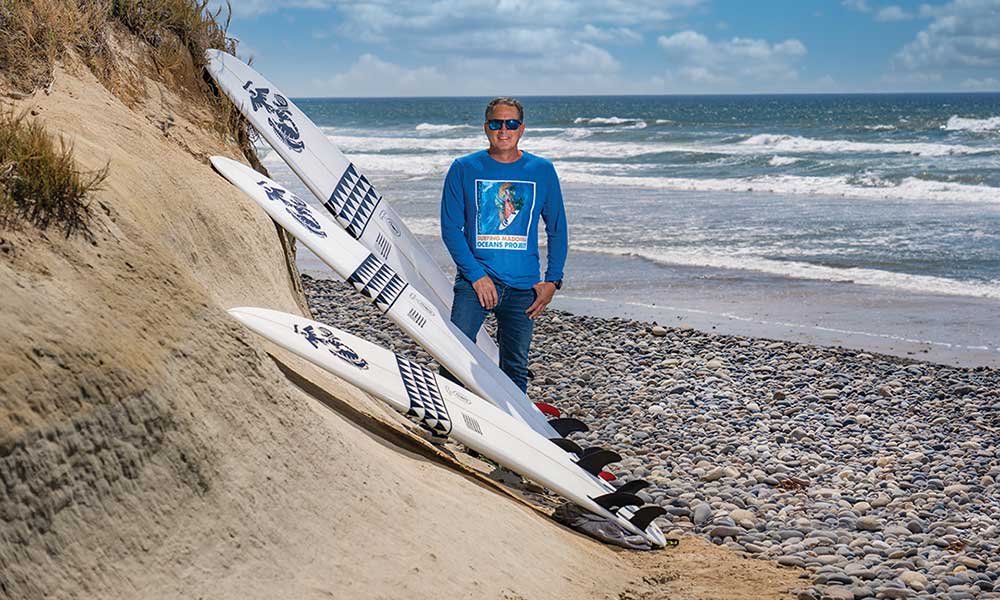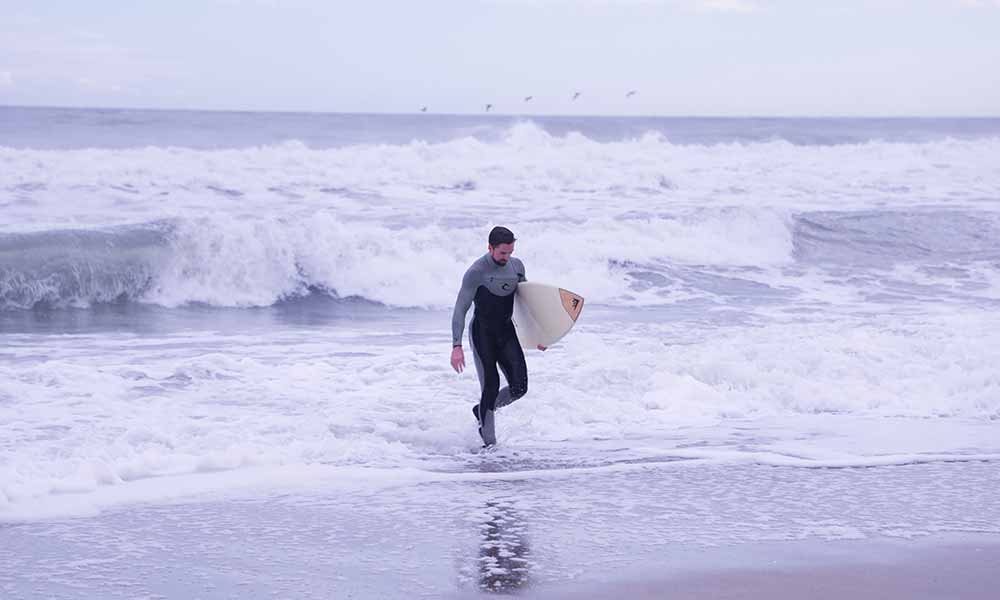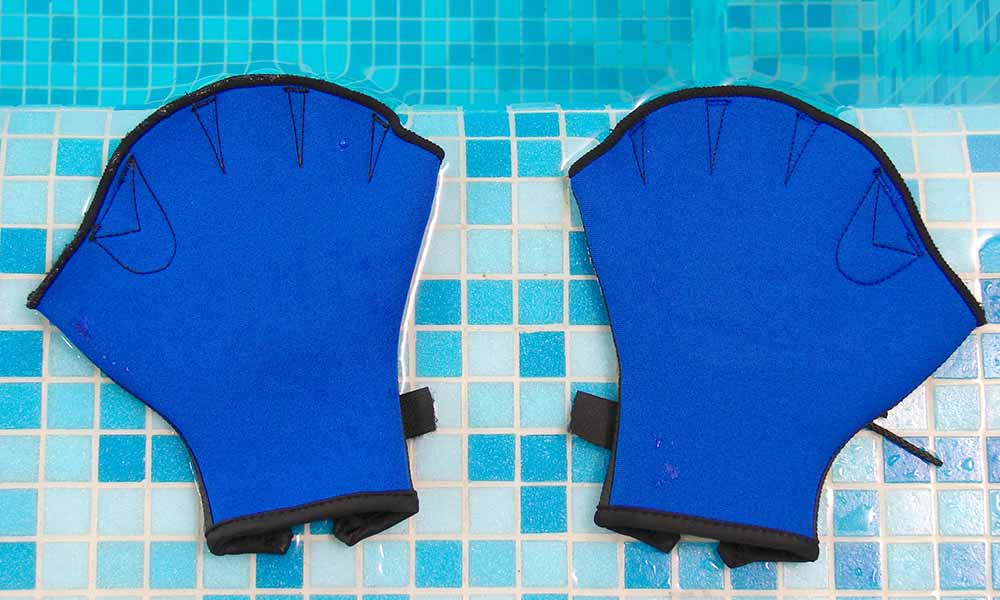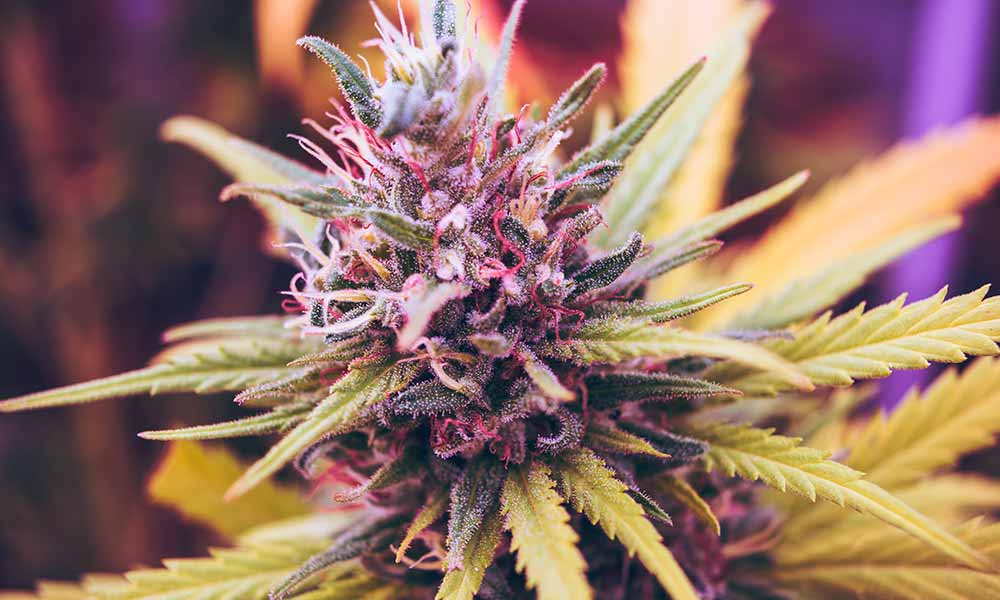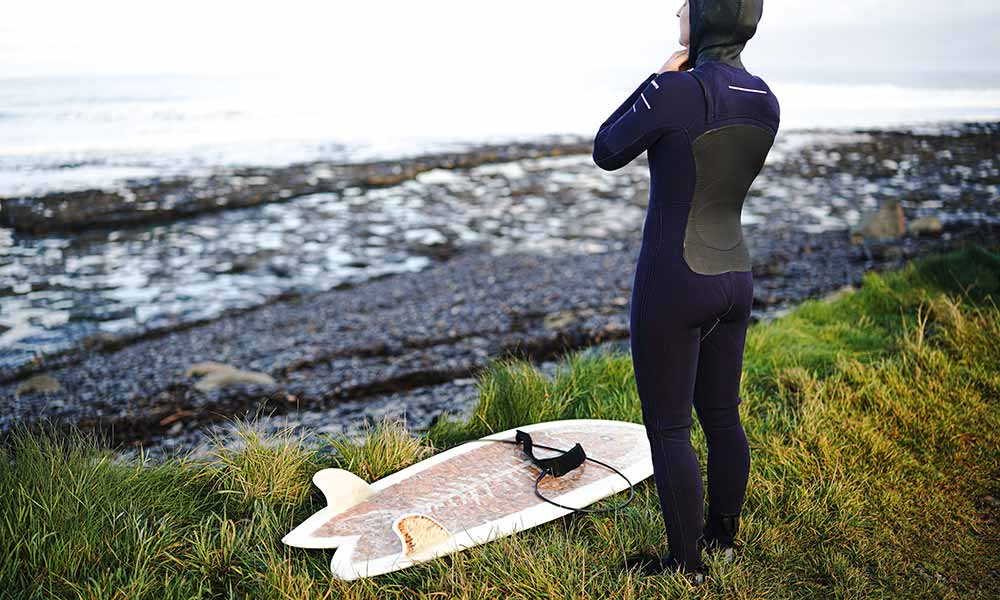Most surfers suffer from rib/chest pain from time to time from paddling. It’s normal, and while it can be uncomfortable and irritating, it’s generally nothing to worry about.
But why does it exist in the first place, are there any effective treatments, and how can you prevent it?
Why Do My Ribs Hurt When Surfing?
When you paddle, you place a lot of your weight on your chest. Your arms hang over the edges of the surfboard, your back is arched, and your head is pulled back so that your eyes look forward.
Your rib cage is in contact with the surfboard at all times, and this is why rib pain is so common.
It’s something that affects surfers of all ages and skill levels, but it’s usually worse in beginners. Not only are they prone to bad posture and bad technique, but they also lack familiarity and tolerance.
What is Rib Flaring?
Rib flaring can make rib pain worse. It’s a condition in which the ribs protrude outwards, as opposed to sitting underneath the shoulders.
If you notice that your lower ribs protrude through your skin and can even be seen through a shirt, then you may have flared ribs. It’s usually more prominent on the left side of the body.
What Causes Rib Flaring?
The issue with rib flaring doesn’t concern the ribs themselves and is actually the result of breathing problems and weak abdominal muscles.
You can fix this issue by practicing a couple of simple exercises and techniques, including deep breathing.
Take deep breaths through your nose and focus on expanding your rib cage. It may help to place your hands around the rib cage before you inhale and see if you can detect any imbalances.
Increasing the range of motion in your shoulders will also help. It means you won’t be forced to overcompensate for limited motion, which in turn should place less pressure on your chest.
What Makes Rib Pain Worse?
If you have any breathing problems, chest pain, or problems with your ribs, you will be more exposed to sore ribs.
It tends to be worse during the summer when surfers paddle more and wear less clothing.
It’s not just sore ribs that you have to worry about. If you wipeout and fall onto the surfboard, you could break a rib. Breaks can also occur when the surfboard hits you.
Why Sore Ribs are a Problem
You could be forgiven for dismissing sore ribs as just “one of those things”, something that you will get used to in time, just like when the skin on your fingers hardens through playing guitar.
But the problem is more serious than that and could be a major detriment to your enjoyment of this sport.
Here are a few reasons why:
It Could Affect Your Breathing
If you’re applying constant pressure to your chest and you’re not dealing with the underlying issues, your breathing may become affected. At the very least, it will make things uncomfortable for you. At most, it could worsen conditions such as asthma.
It Will Ruin a Surf Trip
Surfers spend a lot of money on surf camps and surf trips. They fly everywhere from California to Hawaii and Australia, exploring the world’s best beaches and surf spots. Once you consider the cost of the plane tickets, accommodation, and surfboard equipment rental, it could add up to thousands of dollars.
Imagine booking a 3-day weekend in Hawaii, spending 2 hours on the surf during day one, and then missing the next two days because your ribs are sore and your breathing is affected.
It’ll ruin your vacation, waste your money, and cause you to miss out on the surfing trip of a lifetime.
It Could Cause Skin Irritation
If your bare skin is constantly pressed against the surfboard, with your entire weight forcing it against a hard surface coated in abrasive salt water and surf wax, it will become irritated.
At the end of your session, you may experience itching and discomfort, as well as additional pain caused by inflamed skin.
How Do You Protect Your Ribs When Surfing?
If you’re struggling with rib pain while surfing, try the following solutions:
Surf a Soft Top
Soft top surfboards won’t eradicate the problem completely, as you may still experience rib pain if you paddle for several hours. However, they are much gentler on the chest area than hard top surfboards.
Wear Protection
If you’re surfing in warm water, you might be tempted to skip the wetsuit and rash guard and wear nothing at all. But it’s not just about the temperature—those neoprene garments also create a barrier between the surfboard and your skin, cushioning your chest and limiting the damage.
There are a few products that are tailormade for this purpose. One of the best is the Surf Ribby, a padded rash guard that promises you will “never wake up feeling surfboard-bruised again”.
The PaddleAir offers many of the same benefits and is available on Amazon
Try a Rib Protector
If you’re surfing a hard top and can’t wear a wetsuit, look into buying a rib protector instead. These accessories are designed to wrap around your upper body, providing some protection without making you hot and uncomfortable. The Ribguard is one such product.
How to Deal with Rib Pain
If your ribs are sore after a day riding waves, reach for the ice packs. They should help to reduce the swelling and hasten the recovery process. Be careful not to apply the ice directly to your skin.
Rest and recuperation is also important. Take a break from surfing and don’t perform any strenuous activity for the next few days. You might be eager to get back in the surf, but that’ll just make things worse and could prolong your recovery time. Resist temptation and wait until you have fully recovered before surfing again.
Finally, if you have any serious issues, such as severe breathing difficulties or extreme pain every time you move, contact a physician immediately. You may have broken a rib or suffered another serious injury that requires immediate attention.
Summary: Rib Pain and Surfing
Rib pain can be big issue for all surfers. It can put you out of action for several days in a row, ruining your surf trip and even your summer. Just remember the following:
- Wear a rash guard/rash vest
- Wear a thicker wetsuit or a rib protector
- Pay attention to rib flaring
- Practice breathing techniques
- Listen to your body and pay attention to pains and discomfort
- Be aware of your posture and positioning when paddling
And if you already have rib pain, stay away from surfing, wait until you have recovered, and see a doctor if you have a lot of pain or difficulty breathing.


